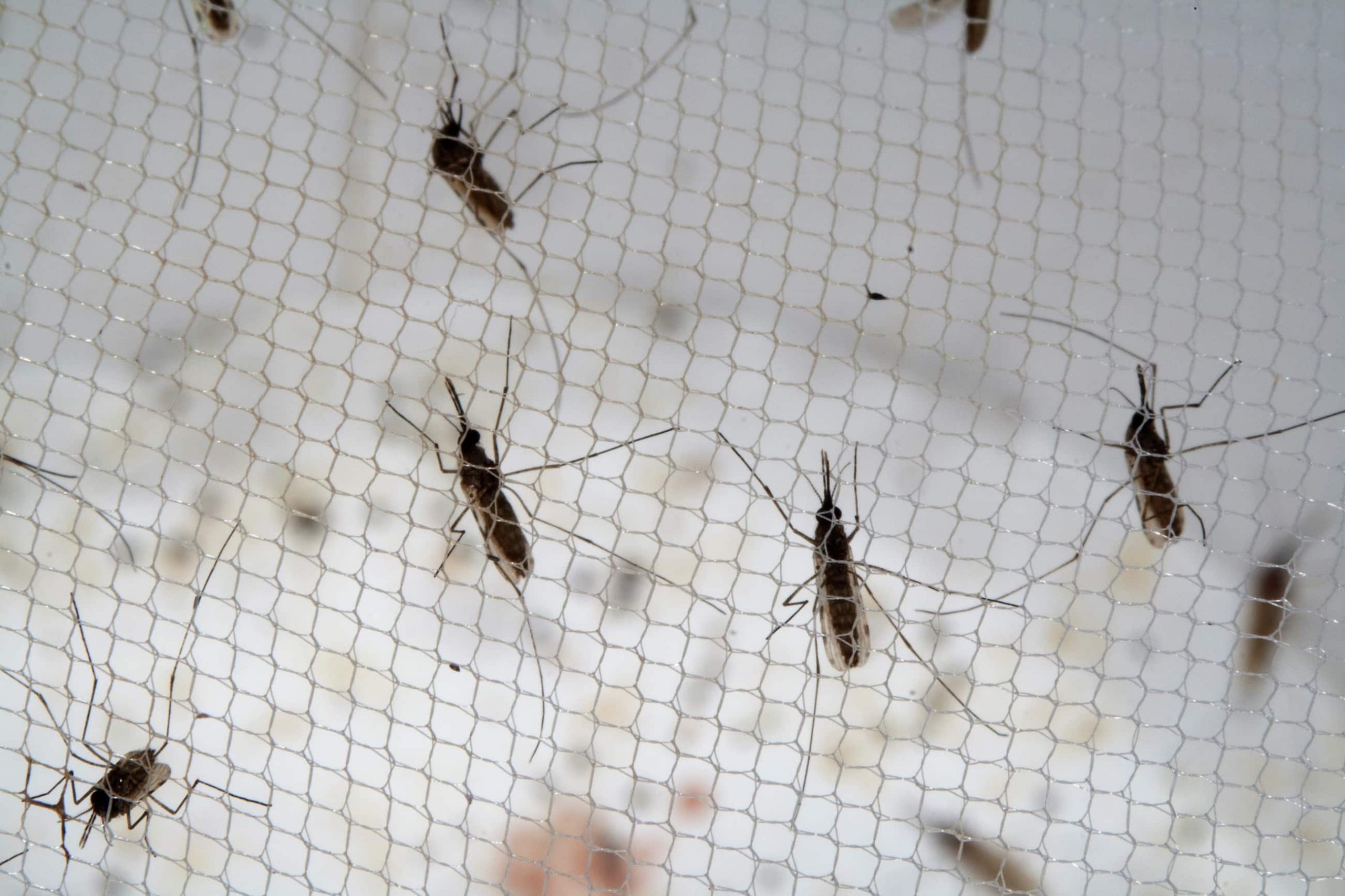AnAPN1 Vaccine
 The Anopheline mosquito midgut-specific alanyl aminopeptidase N (AnAPN1) is a highly conserved luminal midgut surface glycoprotein that is involved in bloodmeal digestion. We have recently shown that antibodies elicited against this antigen can significantly block parasite development in the mosquito and the subsequent cascade of secondary infections once the mosquito takes a bloodmeal from another individual. This type of transmission-blocking vaccine (TBV) is termed “mosquito-based”, since it differs from other malaria TBVs which are targeting parasite surface antigens. It has been estimated that more than 1-2 million individuals succumb to Malaria every year, a majority of whom are children under the age of five. Plasmodium parasites, the causative agent of malaria, are transmitted to a vertebrate host by the infective bite of an Anopheles mosquito. Malaria transmission-blocking vaccines (TBVs) are a critical tool for disease elimination. TBVs prevent completion of the developmental lifecycle of malarial parasites within the mosquito vector, effectively blocking subsequent infections. The mosquito midgut protein Anopheline alanyl aminopeptidase N (AnAPN1) is the leading, mosquito-based TBV antigen to date.
The Anopheline mosquito midgut-specific alanyl aminopeptidase N (AnAPN1) is a highly conserved luminal midgut surface glycoprotein that is involved in bloodmeal digestion. We have recently shown that antibodies elicited against this antigen can significantly block parasite development in the mosquito and the subsequent cascade of secondary infections once the mosquito takes a bloodmeal from another individual. This type of transmission-blocking vaccine (TBV) is termed “mosquito-based”, since it differs from other malaria TBVs which are targeting parasite surface antigens. It has been estimated that more than 1-2 million individuals succumb to Malaria every year, a majority of whom are children under the age of five. Plasmodium parasites, the causative agent of malaria, are transmitted to a vertebrate host by the infective bite of an Anopheles mosquito. Malaria transmission-blocking vaccines (TBVs) are a critical tool for disease elimination. TBVs prevent completion of the developmental lifecycle of malarial parasites within the mosquito vector, effectively blocking subsequent infections. The mosquito midgut protein Anopheline alanyl aminopeptidase N (AnAPN1) is the leading, mosquito-based TBV antigen to date.
[Pictured: Anopheles gambiae membrane feeding on infected blood]
Contact Us
Learn more about the research in the Dinglasan Laboratory.
Latest News
STAY UP TO DATE WITH OUR LATEST NEWS. LEARN ABOUT NEW DEVELOPMENTS, TREATMENTS, VACCINES, OUR LAB & MUCH MORE!

UF Malaria Researcher and Global Partners Win NIH Award for New International Center of Excellence
- Posted OnApril 24, 2024
- By epiadmin
The cooperative agreement, from the National Institute of Allergy and Infectious Diseases, will establish a new International Center of Excellence in Malaria Research (ICEMR) focused
Read More
UF Professor of Infectious Diseases, Dr. Rhoel Dinglasan, discusses the new saliva COVID tests
- Posted OnAugust 20, 2021
- By epiadmin
Watch WCJB TV20 video here.
Read More
First in human clinical trials of the AnAPN1 malaria transmission-blocking vaccine
- Posted OnMarch 31, 2021
- By epiadmin
Former director of the PATH Malaria Vaccine Initiative, Christian Loucq, M.D., says it is exciting to see Dinglasan’s concept moving toward a clinical trial. “There
Read More